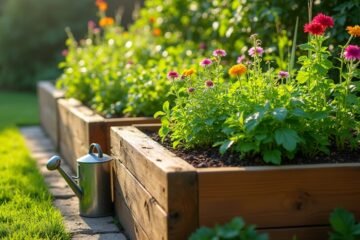Choosing the best DIY composting methods is like revealing a treasure chest for your garden! You’ll turn kitchen scraps and yard waste into golden compost, boosting your plants’ growth and saving cash on fertilizers. Think of it as giving your garden a hearty meal! Plus, it’s super eco-friendly! With options like hot composting or vermicomposting, you can easily find the method that sparks joy. Stick around, and you’ll discover tips to make composting a breeze!
Benefits of DIY Composting for Gardeners
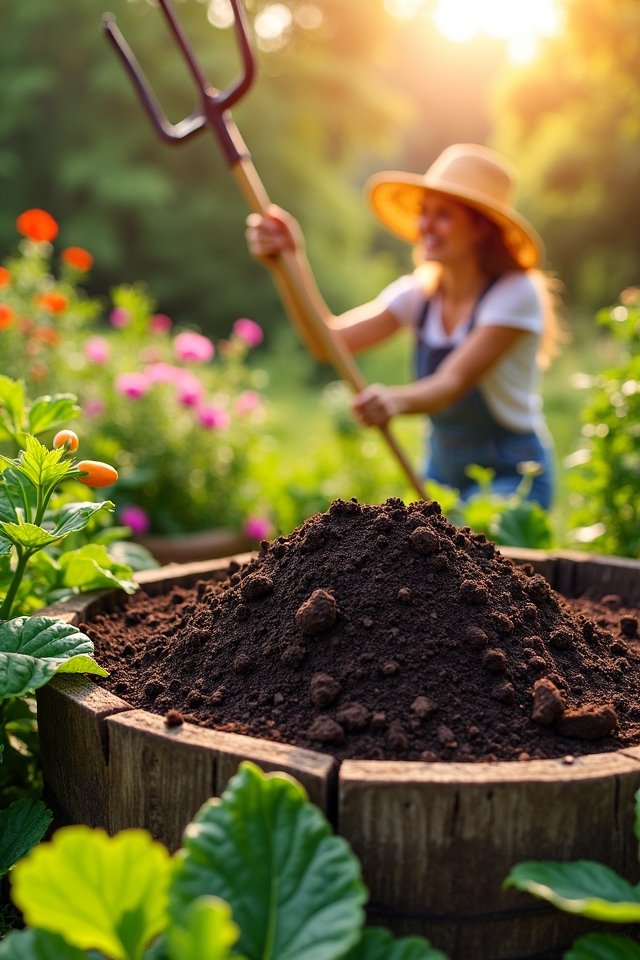
If you’re looking for a way to transform your garden and enjoy the fruits of your labor, DIY composting is a game changer! Not only does it promote nutrient recycling, but it also boosts your garden’s sustainability. Imagine turning kitchen scraps and yard waste into rich, dark gold that nourishes your plants! You’ll literally watch your garden thrive as earthworms wiggle happily through your homemade compost. Are you excited yet? Plus, you’ll save money on store-bought fertilizers and feel like a true eco-warrior at the same time. It’s like giving Mother Nature a high-five! So roll up your sleeves, welcome that innovation, and start composting; your garden—and your wallet—will thank you for it!
Popular DIY Composting Methods Explained
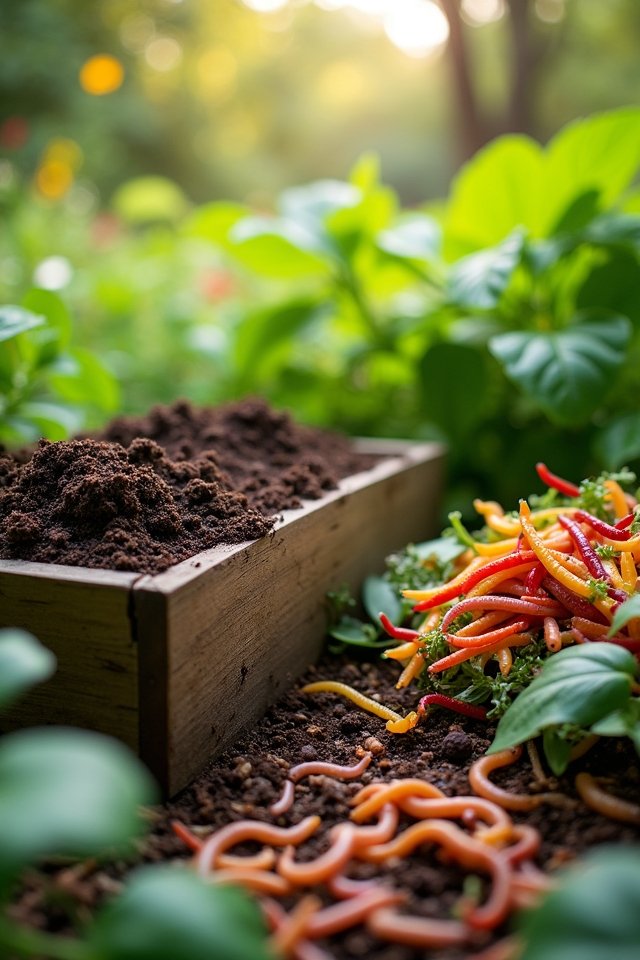
Now that you’re ready to welcome the wonderful world of DIY composting, let’s explore some popular methods that’ll have you churning out nutrient-rich compost in no time! First up is hot composting—think of it as a speedy volcano for kitchen scraps! With a proper mix of greens and browns, you can generate heat quickly, breaking down waste in just a few weeks! Then there’s vermicomposting, the delightful dance of worms turning food waste into “black gold.” You’ll be amazed as these little critters work their magic! Just remember, it’s like having a tiny garden party beneath the soil. So, grab your materials, roll up your sleeves, and let’s get composting—your plants will thank you later!
Essential Materials for Successful Composting
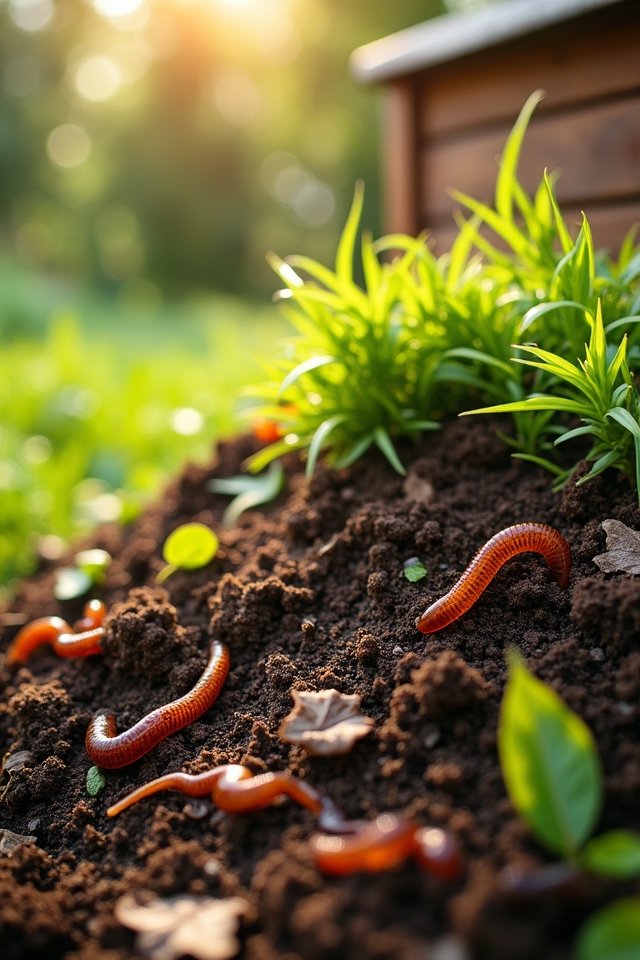
When it comes to successful composting, having the right materials is like throwing the ultimate party for your garden! You want to curate the best mix to create healthy soil, so let’s explore the essentials. Remember the magic of composting ratios; balance is key!
- Nitrogen-rich greens: Think kitchen scraps, grass clippings, or coffee grounds—these energize your compost!
- Carbon-rich browns: Dried leaves, straw, or shredded cardboard provide structure and air.
- Moisture sources: Water or damp newspaper keeps everything happy and productive.
- Microorganisms: A scoop of soil or finished compost kicks off the decomposing fun!
Mix these composting materials wisely, and watch your garden party thrive! Your plants will thank you for this delightful feast!
Tips for Maintaining an Effective Compost Bin
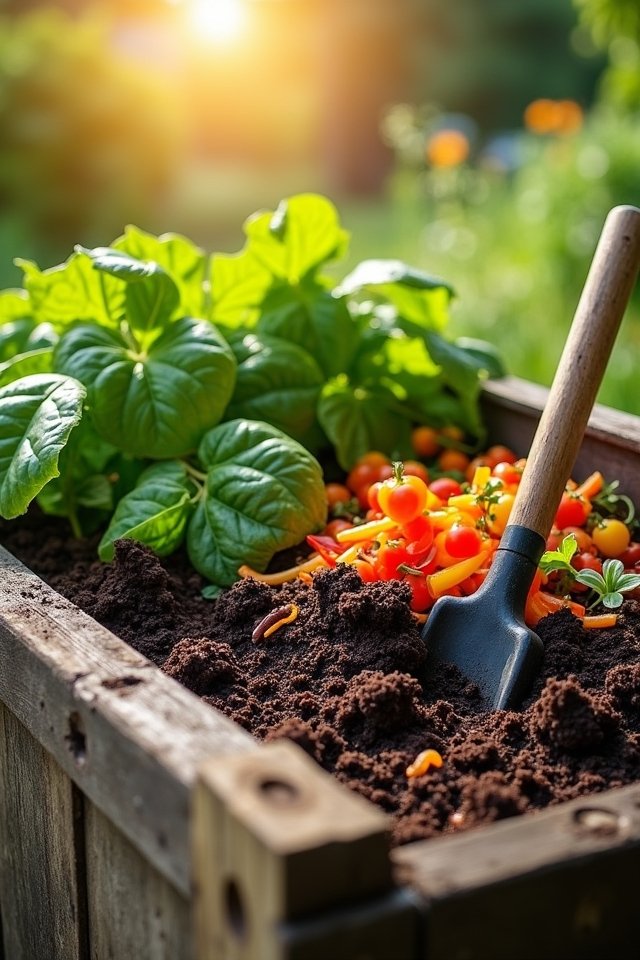
Keep that compost party going strong by properly maintaining your compost bin! First, toss in those kitchen scraps and yard waste, but layer them wisely. Think of it like making a lasagna—add greens and browns in equal measure! For effective aeration, turn your pile every couple of weeks. It’s like giving it a refreshing boost! Use a pitchfork or shovel; your pile will thank you. Keep an eye on moisture, too; it should feel like a wrung-out sponge. If it’s too dry, sprinkle some water in! Finally, don’t hesitate to add a dash of diversity—coffee grounds, eggshells, and leaves create rich nutrients! Enjoy the process, and soon your garden will be thriving with organic goodness!
Troubleshooting Common Composting Issues
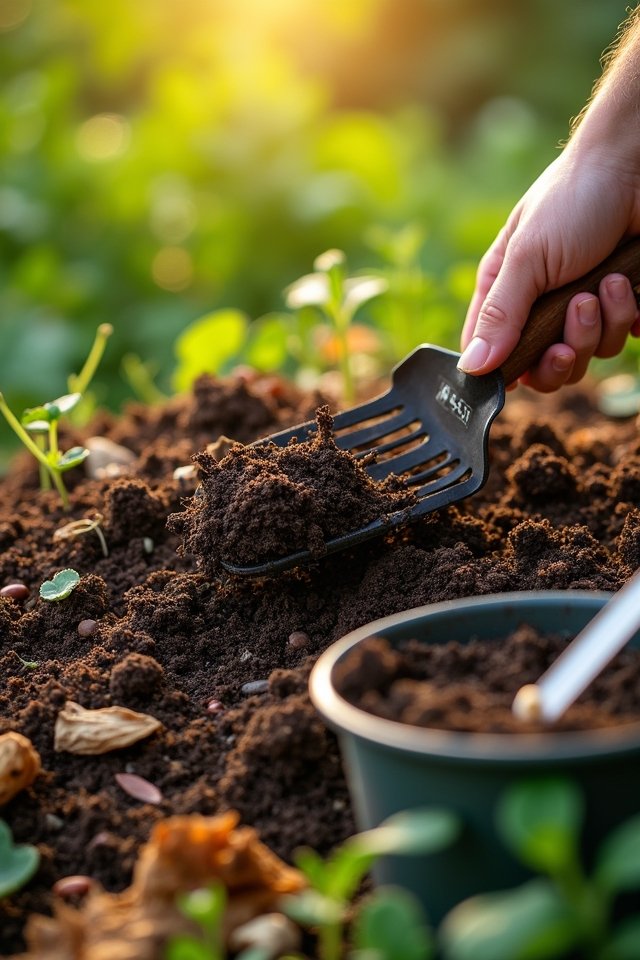
Even the best composters run into issues from time to time, so don’t fret! Remember, every problem’s just a puzzle waiting to be solved. Here are four common composting hiccups and how to tackle them:
- Compost Odors: If your pile smells like a gym sock, balance greens and browns! A pinch of carbon-rich materials can fix that!
- Too Wet?: You’ve entered swamp territory! Mix in dry leaves or shredded paper to soak up excess moisture.
- Pests Are Invading: Don’t panic! Cover your compost and add crushed eggshells for natural pest control.
- Slow Decomposition: Give it a turn! Aeration speeds up the process, encouraging those little microbes to work their magic!
Tackling these issues keeps your compost thriving!
Frequently Asked Questions
Can I Compost Meat or Dairy Products at Home?
You might be surprised, but composting meat or dairy products at home isn’t usually the best idea. Consider it like inviting a skunk to your picnic—just not worth the smell! Meat composting and dairy composting can attract pests and cause unpleasant odors. Instead, focus on veggie scraps, coffee grounds, and eggshells. They’ll turn your compost into a rich, earthy delight without the drama! Keep it simple, and your garden will thank you!
How Long Does It Take to Make Compost?
It usually takes about 2 to 6 months to make compost, depending on your composting materials. If you mix in green waste and balance it with brown materials, you’ll speed up that composting timeline! Keep it moist and turn it regularly—think of it as a garden party for decomposers. If you’re patient, you’ll soon have rich, dark compost, ready to nourish your garden and make your plants sing! Isn’t nature fantastic?
Do I Need a Special Bin for Composting?
You don’t need a fancy compost bin to work magic on your kitchen scraps! Simple compost bin types, like a homemade wooden box or even a pile in the backyard, can do wonders. Imagine transforming waste into black gold! The composting benefits—like reducing landfill waste and enriching your garden—are fantastic. Plus, you’ll feel like a green superhero! So, grab a bin, and start your composting adventure. Who knew saving the planet could be so fun?
Can I Compost Pet Waste?
You might be wondering if you can compost pet waste. Unfortunately, traditional composting isn’t the best option for that! Instead, consider composting alternatives like specialized pet waste systems. These nifty solutions use heat and microbes to break down the waste safely. Imagine turning that smelly scoop into nutrient-rich soil! Just think of your garden thriving with all that extra love. Your flowers won’t judge you, and your yard will thank you!
Is Composting Safe for Vegetable Gardens?
Composting’s not just safe for your vegetable garden, it’s a game-changer! If you’ve ever tasted a juicy, home-grown tomato, you know the difference great compost makes! It enriches your soil with nutrients, boosting vegetable safety and flavor. Just steer clear of meat or dairy, and you’re golden! Imagine lush greens thriving in your backyard, vibrant colors beckoning you like a rainbow. So why wait? Immerse yourself in composting and cultivate your garden dreams!

